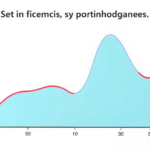Why is it harder to lose weight as we age?
As we age, many people find it more challenging to shed those extra pounds. This can be frustrating, especially when you’ve spent years managing your weight effectively. Understanding the reasons behind this change can empower you to take control of your health in your golden years.
Changes in Metabolism
One of the primary reasons it’s harder to lose weight as you age is a decline in metabolism. Metabolism refers to the body’s process of converting food into energy. As you get older, your resting metabolic rate tends to decrease due to several factors:
- Muscle Mass Reduction: With age, muscle mass naturally decreases, largely due to hormonal changes. Since muscle burns more calories than fat even at rest, a reduction in muscle can slow your metabolism.
- Hormonal Changes: Hormones such as testosterone and estrogen significantly influence body composition. A decrease in these hormones can lead to weight gain and a more challenging weight loss journey.
- Activity Level: Older adults often become less active, leading to fewer calories burned each day. This reduced activity level can greatly impact weight loss efforts.
Muscle and Fat Distribution
As you age, there is also a change in how your body stores fat. Many people experience an increase in abdominal fat, which can be harder to lose. Here’s how this affects your weight loss journey:
- Increased Visceral Fat: This type of fat is stored around your organs and can be particularly stubborn. It’s also linked to various health problems, making it essential to address.
- Shifts in Body Composition: With more fat and less muscle, daily caloric needs decrease, which can complicate weight management strategies.
Base Factors Affecting Weight Loss
Some key biological and lifestyle factors contribute to the difficulty of losing weight as you age:
- Genetics: Your genes play a role in how your body stores and loses fat. If weight gain runs in your family, you might face a steeper challenge.
- Health Conditions: Many age-related health issues, such as arthritis or diabetes, can limit your ability to exercise, impacting your weight loss efforts.
- Medications: Certain medications prescribed for age-related conditions can also contribute to weight gain or hinder weight loss.
Importance of Nutrition
Nutrition plays a crucial role in your weight management strategy. As you age, your body’s nutritional needs change. Here are some dietary tips to consider:
- Focus on Whole Foods: Incorporate more fruits, vegetables, whole grains, and lean proteins into your diet.
- Monitor Portion Sizes: As calories needed decrease, be mindful of portion sizes to avoid overeating.
- Stay Hydrated: Drinking water can sometimes curb hunger and support metabolism.
Exercise and Physical Activity
Regular physical activity is essential for people of all ages, but it becomes even more critical as you grow older. Regular exercise not only helps burn calories but also preserves muscle mass, which is vital for maintaining a healthy metabolism. Here are some recommendations:
- Strength Training: Aim for at least two sessions per week to help build and maintain muscle mass.
- Aerobic Activities: Engage in walking, swimming, or cycling for cardiovascular health and calorie burning.
- Flexibility and Balance: Incorporate yoga or stretching programs to improve flexibility and prevent injuries.
Seeking Professional Guidance
As you navigate the complexities of weight loss in your later years, consider working with professionals. A registered dietitian or a personal trainer can provide personalized recommendations based on your unique circumstances. They can help you set realistic goals, create a balanced meal plan, and develop an exercise routine that works for your body’s abilities.
Understanding the reasons behind the struggles of weight loss as we age can guide you toward more effective strategies. With the right approach, patience, and professional support, you can manage your weight and enjoy a healthier lifestyle.
For more insights on nutrition and healthy aging, check out Eat Right and NHLBI.
The role of metabolism in weight management over the years
As we get older, you might notice that shedding those extra pounds becomes more challenging. One major factor that plays a crucial role in this process is metabolism. Understanding how metabolism works and how it changes throughout life can help you navigate weight management more effectively.
To put it simply, metabolism refers to all the chemical processes that occur within your body to maintain life. It includes how your body converts food into energy, repairs cells, and manages waste. As you age, several biological changes impact your metabolism.
Factors Affecting Metabolism with Age
Here are some key factors that contribute to the slowdown of metabolism as you grow older:
- Muscle Mass: Muscle is metabolically active tissue. As you age, you naturally lose muscle mass, partly due to hormonal changes and reduced physical activity. Since muscles burn more calories than fat, less muscle means a lower metabolic rate.
- Hormonal Changes: Hormones like estrogen and testosterone play significant roles in regulating metabolism. As these hormone levels decline with age, your metabolism can slow down, making it harder to maintain or lose weight.
- Physical Activity: Many people become less active as they age, either due to health issues or lifestyle changes. Reduced physical activity not only contributes to loss of muscle mass but also directly affects calorie expenditure.
- Caloric Needs: As you age, your body may require fewer calories due to slower metabolism. This can lead to weight gain if you continue to eat the same amount.
How to Manage Metabolism Over Time
While the decline in metabolism is natural, there are strategies you can adopt to help manage your metabolic rate as you age:
- Strength Training: strength training exercises at least two times a week can help you preserve and even build muscle mass. This, in turn, can rev up your metabolism.
- Stay Active: Aim for at least 150 minutes of moderate aerobic activity per week, such as walking, cycling, or swimming. Staying active helps keep your metabolism running efficiently.
- Eat Enough Protein: Eating more protein can help stimulate muscle growth and repair. Proteins also require more energy to digest, which can slightly boost your metabolism.
- Stay Hydrated: Drinking enough water is essential for optimal metabolic processes. Dehydration can slow down your metabolism, so aim to drink water regularly throughout the day.
The Importance of a Balanced Diet
What you eat plays a significant role in managing your weight and metabolism. A balanced diet filled with whole foods can benefit your overall health and aid weight management. Include:
- Fruits and Vegetables: These are low in calories and high in essential nutrients, making them the perfect companions in weight management.
- Whole Grains: Foods like whole oats, quinoa, and brown rice provide fiber that keeps you feeling full longer.
- Healthy Fats: Foods like avocados, nuts, and olive oil can support satiety and improve metabolic health.
Understanding Practical Expectations
It’s essential to have realistic expectations regarding weight management as you age. Metabolism may slow, but with the right lifestyle choices, you can still achieve healthy weight levels. Remember to focus on overall well-being rather than just the number on the scale.
| Age Group | Average Basal Metabolic Rate (BMR) in Calories |
|---|---|
| 20-30 | 2,400 (men), 1,800 (women) |
| 30-40 | 2,300 (men), 1,750 (women) |
| 40-50 | 2,200 (men), 1,650 (women) |
| 50-60 | 2,100 (men), 1,550 (women) |
For more information on metabolism and age-related weight management, you can explore resources like the National Institute on Aging and Choose My Plate.
Ultimately, understanding the role of metabolism in weight management as you age empowers you to take control of your health. While challenges may arise, adopting positive lifestyle habits can keep your metabolism working for you, helping you reach your weight management goals.
Hormonal changes: How they affect weight loss in older adults
As we age, our bodies undergo significant hormonal changes that can impact weight loss efforts. Understanding how these hormonal shifts affect our metabolism, appetite, and overall body composition can help older adults navigate their weight management goals more effectively. Let’s explore the primary hormonal changes that come with age and their influence on weight loss.
Hormonal Shifts That Occur with Aging
The aging process causes several hormonal changes, particularly involving hormones like estrogen, testosterone, cortisol, and insulin. These changes can create a challenging environment for weight loss.
- Estrogen: In women, estrogen levels decline during menopause. Lower estrogen can lead to increased fat storage, especially around the abdomen, making it harder to lose weight.
- Testosterone: Men also experience a decline in testosterone as they age. This hormone is vital for muscle mass and strength; reduced levels lead to muscle loss, which can slow down metabolism.
- Cortisol: This stress hormone can be elevated in older adults, often due to lifestyle changes or health issues. High cortisol levels can increase appetite and cravings, making it difficult to maintain a healthy diet.
- Insulin: With age, the body may become less sensitive to insulin. This condition, known as insulin resistance, can lead to weight gain and make it harder for older adults to lose weight.
The Impact of Hormonal Changes on Metabolism
Metabolism naturally slows down as we age due to hormonal changes. This change means that older adults may not burn calories as efficiently as they did in their younger years. Muscle mass typically decreases, which directly impacts resting metabolic rate (RMR). A lower RMR means you burn fewer calories at rest, making weight loss efforts more challenging.
Muscle Loss and Metabolism
One of the most significant factors contributing to weight loss difficulties as we get older is sarcopenia, the loss of muscle mass. Here’s how muscle loss affects metabolism:
- Less muscle means fewer calories burned while at rest, leading to potential weight gain.
- Muscle serves to increase insulin sensitivity, thus, its loss can exacerbate insulin resistance.
Appetite Regulation and Older Adults
Hormonal changes also influence appetite regulation. As we age, the balance between hunger hormones like ghrelin and leptin can shift. Ghrelin stimulates appetite, while leptin signals fullness. An imbalance may lead to increased cravings and a higher propensity to consume more calories than your body requires.
Strategies to Manage Weight Loss
It’s crucial for older adults to implement strategies to combat these hormonal impacts and achieve successful weight loss. Here are some effective approaches:
- Regular Exercise: Resistance training helps preserve and build muscle mass, which boosts metabolism.
- Balanced Diet: Focus on a diet rich in whole foods—lean proteins, fruits, vegetables, and healthy fats—to maintain energy levels and manage appetite.
- Mindful Eating: Pay attention to hunger signals and eat slowly to better regulate appetite and ensure proper portion sizes.
- Stress Management: Techniques such as meditation, yoga, or deep-breathing exercises can help lower cortisol levels and control appetite.
Consulting Healthcare Professionals
Given the complex nature of hormonal changes and their influence on weight loss, consulting healthcare professionals can provide additional guidance. Nutritionists, dietitians, and fitness trainers can tailor an approach that suits individual health needs and lifestyle preferences. They can offer specific recommendations based on personal health history, current activity levels, and dietary habits.
For more insight into hormonal effects on weight management, visit NCBI or explore stories from older adults who have successfully navigated their weight loss journeys at American Family Physician.
While hormonal changes can make weight loss more challenging as we age, understanding these changes helps you implement effective strategies to achieve your health goals. With the right approach, you can still maintain a healthy weight and enjoy a fulfilling life.
The impact of muscle loss on calorie burning as we age
The relationship between muscle loss and calorie burning is a significant concern as we age. As you get older, your body naturally undergoes changes that can affect your metabolism and how efficiently you burn calories. Understanding these changes can help you manage your weight more effectively. Let’s dive into how muscle loss impacts calorie burning and what you can do about it.
One of the main reasons it becomes more challenging to lose weight as we age is due to the natural decline in muscle mass. Muscle tissue is metabolically active, meaning it burns calories even when you’re not exercising. As you age, you may lose muscle at a rate of about 3-8% per decade after the age of 30. This loss can accelerate after age 60, leading to what is known as sarcopenia, or age-related muscle loss.
Here are key points to consider regarding muscle loss and calorie burning:
- Reduction in Metabolic Rate: When you lose muscle mass, your resting metabolic rate decreases. This means your body burns fewer calories at rest, making it easier to gain weight over time.
- Changing Hormones: Hormones such as testosterone and growth hormone, which are important for muscle maintenance, decline with age. This further accelerates muscle loss and reduces the body’s ability to burn fat.
- Decreased Physical Activity: Older adults often engage in less physical activity, partly due to mobility issues or lifestyle changes. This reduced activity can lead to further muscle loss and a decrease in overall calorie expenditure.
- Increased Fat Mass: As muscle mass declines, many people notice an increase in body fat. Fat tissue does not burn calories as efficiently as muscle, further compounding the issue of weight gain.
These factors combined create a scenario where maintaining a healthy weight becomes increasingly difficult. Essentially, with less muscle to support metabolic processes, you might need to consume fewer calories to maintain your current weight. This can lead to frustration and a feeling of being stuck.
The good news is that there are strategies you can implement to combat muscle loss and promote healthier weight management:
- Strength Training: Include resistance exercises in your routine at least two times a week. Strength training helps build and maintain muscle mass. Consider activities like weightlifting, bodyweight exercises, or resistance band workouts.
- Protein-Rich Diet: Consuming adequate protein is key to muscle preservation. Aim for protein sources such as lean meats, fish, dairy, beans, and legumes. Target about 1.2 to 2.0 grams of protein per kilogram of body weight, depending on your activity level.
- Stay Active: Besides strength training, incorporate aerobic exercises such as walking, swimming, or cycling. Regular physical activity can help maintain your muscle mass and improve your overall metabolism.
- Mind Your Caloric Intake: Since metabolism slows down with age, pay attention to your caloric intake to avoid unwanted weight gain. Track what you eat to ensure you’re consuming a balanced diet while maintaining an adequate protein intake.
It’s essential to be proactive about your fitness as you age. Regular check-ups with a healthcare provider can tailor recommendations for your specific health needs. They can guide you to websites and resources for more tailored fitness programs and diet plans tailored for older adults, such as NIH’s PubMed Central or National Institute on Aging.
Implementing these strategies can significantly mitigate the effects of muscle loss over time. You may not be able to stop aging, but you have the power to take charge of your health, enabling you to effectively manage your weight as you age. Understanding the connection between muscle and metabolism will be crucial on your journey to a healthier lifestyle.
Lifestyle choices that can improve weight loss at any age
Making smart lifestyle choices can significantly improve weight loss efforts, no matter your age. As we grow older, our bodies undergo various changes that can affect metabolism, physical activity levels, and overall health. Here are some effective strategies that can help you achieve your weight loss goals.
Balanced Nutrition
Eating a balanced diet is crucial for losing weight at any age. Focus on incorporating a variety of foods that provide essential nutrients. Here are key components to include:
- Fruits and Vegetables: Aim for at least five servings a day. These foods are low in calories and high in vitamins, minerals, and fiber.
- Whole Grains: Opt for whole grains like brown rice, oats, and quinoa. They are filling and provide sustained energy.
- Lean Proteins: Include sources such as chicken, turkey, fish, beans, and tofu. Proteins can help keep you full longer, reducing the urge to snack.
- Healthy Fats: Incorporate sources like avocados, nuts, and olive oil. Healthy fats can aid in nutrient absorption.
Regular Physical Activity
Staying active is one of the most effective ways to lose weight. Regular exercise not only helps you burn calories but also strengthens muscles and boosts mood. Here are activities to consider:
- Aerobic Exercises: Walking, running, swimming, or biking can enhance cardiovascular health and promote weight loss. Try to get at least 150 minutes per week of moderate aerobic exercise.
- Strength Training: Lifting weights or performing bodyweight exercises can build muscle, which burns more calories at rest. Aim for strength training exercises two to three times a week.
- Flexibility and Balance: Include activities such as yoga or Pilates. These can improve flexibility and stability, reducing the risk of injury while you exercise.
Stay Hydrated
Although often overlooked, staying hydrated plays a significant role in weight loss. Water can aid digestion and help control hunger. Aim to drink at least eight 8-ounce glasses of water daily. You can also include:
- Herbal teas
- Infused water with fruits or herbs
- Limit sugary drinks and sodas, as they add unnecessary calories
Mindful Eating
Mindful eating involves paying attention to what and how much you eat. It can help you develop a healthier relationship with food. Here are some techniques:
- Eat Slowly: Take your time to enjoy your meals. It allows your body to signal when it’s full.
- Avoid Distractions: Try not to eat while watching television or working. Focus on your meal.
- Listen to Your Body: Understand cues for hunger versus boredom. Eat only when you’re genuinely hungry.
Quality Sleep
Getting enough quality sleep is essential for weight management. Poor sleep can disrupt hormones that regulate appetite, making it easier to gain weight. To improve your sleep:
- Establish a consistent sleep schedule
- Create a relaxing bedtime routine
- Avoid large meals and caffeine close to bedtime
Stress Management
Managing stress is crucial for maintaining a healthy weight. Chronic stress can lead to emotional eating or weight gain. Consider incorporating these stress-relieving techniques:
- Meditation: Practicing mindfulness can help you cope with stress.
- Regular Exercise: Physical activity serves as a natural stress reliever.
- Connect with Others: Spend time with friends and family or engage in community activities.
Implementing these lifestyle choices can significantly impact your weight loss journey, regardless of age. For more tips and advice on healthy living, visit CDC – Healthy Weight and explore their resources for effective weight management.
Remember, weight loss is not solely about the numbers on the scale. It’s about improving your health and well-being. Adopting a generally healthier lifestyle can lead to lasting changes and better overall quality of life.
For personalized guidance, consider consulting a healthcare professional or registered dietitian. They can create a tailored plan to help you achieve your weight loss goals in a sustainable way.
The significance of nutrition in combating age-related weight gain
Nutrition plays a crucial role in managing weight, especially as we age. Understanding how our dietary needs change over the years can help you combat age-related weight gain effectively. When you’re younger, your metabolism tends to be faster, allowing your body to burn calories more easily. As you grow older, your body undergoes various changes that can slow down this process. Here’s a closer look at why nutrition becomes even more essential as we age.
Metabolic Changes
As you age, your metabolism tends to slow down due to a decrease in muscle mass. Muscle burns more calories than fat, so losing muscle can lead to weight gain if you don’t adjust your caloric intake. Here’s how nutrition can help:
- Increased Protein Intake: Consuming adequate protein can help maintain muscle mass. Foods like lean meats, eggs, and legumes are excellent sources.
- Reduce Processed Foods: Processed foods are often high in empty calories. Opting for whole foods can improve metabolism and maintain a healthy weight.
Hormonal Changes
Hormonal shifts, such as decreased levels of estrogen in women and testosterone in men, can impact your body’s ability to regulate weight. Nutrition can help counteract these effects:
- Healthy Fats: healthy fats like avocados, nuts, and olive oil can improve hormone production and aid in weight management.
- Omega-3 Fatty Acids: These can help regulate hormones and reduce inflammation, which is often heightened during aging.
Importance of Nutrient-Dense Foods
As you age, your body needs fewer calories, but it requires more nutrients. This balance makes it crucial to focus on nutrient-dense foods:
| Food Group | Examples | Nutrients |
|---|---|---|
| Fruits & Vegetables | Berries, leafy greens, broccoli | Vitamins, minerals, antioxidants |
| Whole Grains | Quinoa, brown rice, oats | Fiber, vitamins B, iron |
| Protein Sources | Chicken, beans, tofu | Protein, iron, other nutrients |
| Dairy or Alternatives | Yogurt, almond milk | Calcium, vitamin D |
Hydration Matters
Staying hydrated is essential, especially as you age. Your body’s thirst signals may weaken, causing you to consume fewer fluids. Dehydration can lead to weight gain and other health issues. To stay hydrated:
- Drink Water Regularly: Aim for at least 8 glasses a day, adjusting based on activity level and climate.
- Include Hydrating Foods: Foods like cucumbers, oranges, and soups contribute to hydration and provide essential nutrients.
Mindful Eating
Practicing mindful eating can significantly impact your nutrition and weight management. Being aware of what you eat helps prevent overeating. Here are some tips:
- Savor Your Food: Take time to enjoy each bite, which can lead to lower calorie consumption.
- Listen to Your Body: Pay attention to hunger and fullness cues rather than eating out of habit.
These nutritional strategies can empower you to manage weight effectively as you age. By focusing on a balanced diet and making informed food choices, you can combat age-related weight gain and enhance your overall health.
For further information on nutrition and aging, consider checking resources like the National Institute on Aging or the Academy of Nutrition and Dietetics.
Effective exercise strategies for weight management in later life
As we grow older, maintaining a healthy weight can sometimes feel like an uphill battle. Our bodies change, and so do our exercise needs and habits. Implementing effective exercise strategies is key to managing weight in later life. Engaging in the right workouts not only helps preserve lean muscle mass but also enhances overall wellness. Here are some strategies to help you stay active and fit.
Find the Right Exercises
Not all exercises are created equal, especially for older adults. It’s important to select activities that promote weight management while also being safe and enjoyable. Consider these options:
- Strength Training: resistance training at least two days a week helps build muscle and increase metabolism. Exercises using resistance bands, dumbbells, or body weight, such as squats and push-ups, can be very effective.
- Aerobic Activity: Aim for at least 150 minutes of moderate-intensity aerobic activity each week. Walking, swimming, and cycling are excellent choices that can be adjusted to your fitness level.
- Flexibility and Balance Exercises: Activities such as yoga and tai chi not only improve flexibility but also enhance balance, reducing the risk of falls.
Set Realistic Goals
Making strides in fitness requires setting achievable goals. Aim for small, incremental changes that are specific, measurable, and time-bound. For example, instead of aiming to lose 20 pounds, focus on adding two strength training sessions each week.
Tracking your progress can motivate you to stay on course. Keep a journal or use fitness apps to record your workouts and celebrate your achievements.
Incorporate Daily Movement
Exercise doesn’t have to come from structured workouts alone. more physical activity into your daily routine can significantly impact your weight management efforts.
- Take frequent walking breaks throughout the day.
- Use the stairs instead of the elevator.
- Pursue hobbies that require physical activity, like gardening or dancing.
Listen to Your Body
As you age, it becomes vital to pay attention to how your body responds to various exercises. If something doesn’t feel right, don’t hesitate to modify your routine. If any exercise causes pain or discomfort, consult a healthcare professional for alternative options.
Stay Socially Active
Engaging in group activities can make exercising more enjoyable and keep you accountable. Joining fitness classes designed for seniors or local walking clubs can foster motivation and provide a social outlet. Additionally, having a workout buddy can help you stay consistent.
Nutrition Matters
Effective exercise strategies should go hand-in-hand with a healthy diet. It’s essential to fuel your body with nutritious foods that support your physical activities. Here are some diet tips:
- Focus on whole foods, including fruits, vegetables, whole grains, and lean proteins.
- Stay hydrated by drinking plenty of water, especially before and after workouts.
- Limit processed foods, which can be high in sugar and unhealthy fats.
Monitor Your Progress
Keeping track of your exercise and dietary habits can help you understand what works best for you and what needs adjustment. Whether it’s through a digital app, wearable fitness tracker, or a simple notebook, consistent monitoring can lead to better outcomes.
It’s essential to remain patient and persistent. Weight management and maintaining physical fitness in later life comes with its challenges, but with the right strategies, you can achieve your goals.
For additional resources and guidelines on fitness for seniors, you can visit CDC Physical Activity for Older Adults or explore fitness programs at AARP Senior Exercise Classes.
Incorporate these strategies into your routine, and take the first step towards a healthier weight and a more active lifestyle!
Key Takeaway:
As we age, many individuals find it increasingly challenging to lose weight, a phenomenon rooted in multiple biological and lifestyle factors. This article delves into the reasons behind the difficulty in weight loss as we grow older, covering key topics to provide a comprehensive understanding.
Firstly, our metabolism often slows down as we age, which directly impacts weight management. Metabolism refers to the processes the body uses to convert food into energy. During youth, higher metabolic rates help burn calories quickly. However, as we age, factors such as a decrease in muscle mass contribute to a slower metabolism, making it harder to shed pounds.
Furthermore, hormonal changes are inevitable with age. Hormones like estrogen and testosterone play critical roles in regulating body composition. In women, menopause triggers a drop in estrogen, which can lead to increased fat storage, particularly around the abdomen. Similarly, men experience a gradual decrease in testosterone, resulting in changes to body fat distribution and an inclination towards weight gain.
Additionally, muscle loss, a natural part of aging, significantly impacts calorie burning. Muscle tissue is more metabolically active than fat tissue, meaning that individuals with more muscle mass burn more calories, even at rest. As muscle mass decreases over the years, the caloric expenditure diminishes, making it easier to gain weight.
This does not mean that weight loss is impossible as we grow older. Lifestyle choices play a crucial role in managing weight. balanced nutrition with an emphasis on whole foods can combat age-related weight gain. Focusing on a diet rich in fruits, vegetables, lean proteins, and whole grains can help maintain a healthy weight and provide essential nutrients.
Moreover, effective exercise strategies tailored for older adults are vital. Strength training and aerobic exercises can help counteract muscle loss and boost metabolism. Engaging in physical activity not only promotes weight loss but also enhances overall health and well-being.
While losing weight may become more difficult with age due to slower metabolism, hormonal fluctuations, and muscle loss, making conscious lifestyle choices and adopting effective exercise strategies can significantly support weight management at any age. By understanding these factors and taking proactive steps, you can navigate the challenges of weight loss as you age.
Conclusion
As we age, losing weight becomes a more challenging journey for many, primarily due to a slower metabolism, hormonal changes, and the impact of muscle loss on calorie burning. Understanding the reasons behind this shift can empower you to take actionable steps toward your weight loss goals.
Metabolism naturally declines with age, making it crucial for you to adjust your caloric intake and increase your physical activity. Hormonal changes, particularly in women during menopause, can lead to weight gain that is often challenging to manage. Additionally, muscle mass typically decreases as you grow older, which can further decrease calorie-burning potential.
However, it’s important to remember that you have control over many aspects of your weight management. By making wise lifestyle choices—such as incorporating nutrient-dense foods into your diet and exercising regularly—you can combat age-related weight gain. Prioritizing a balanced diet rich in vitamins and minerals will bolster your body’s ability to manage weight effectively.
Adopting effective exercise strategies, including strength training and aerobic activities, can help you maintain and build muscle mass, enhancing your metabolism. Even moderate exercise can yield significant health benefits and improve your overall quality of life.
Ultimately, while it may be harder to lose weight as you age, the right approach to nutrition and exercise can lead to successful weight management. Embracing these changes not only helps in shedding pounds but fosters a healthier, more active lifestyle at any age.










